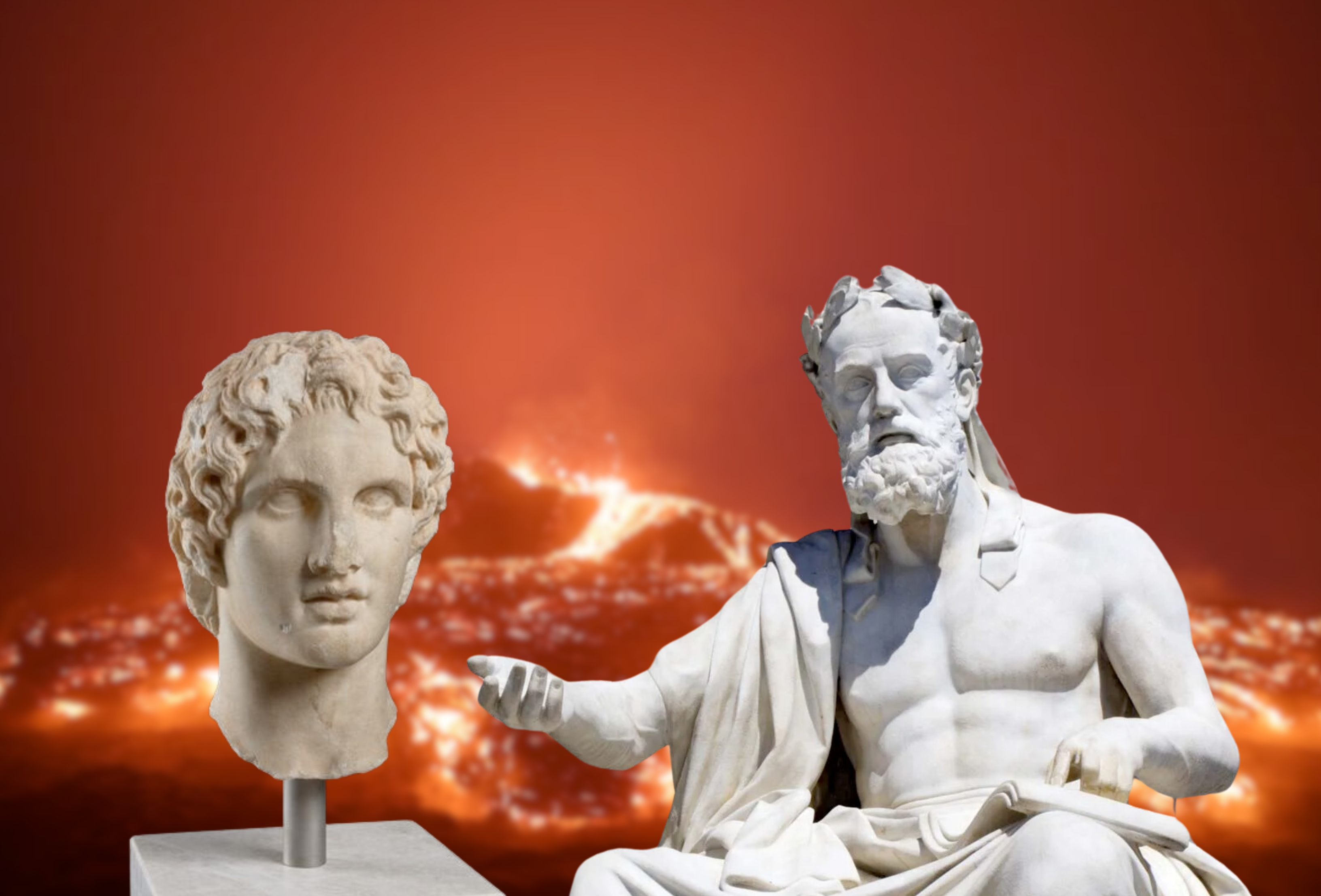crisis
10 Lessons That Inspired Alexander The Great, Part 10
June 2024

crisis
10 Lessons That Inspired Alexander The Great, Part 10
June 2024
Alexander The Great set into motion the events that would create the modern world. He studied and was inspired by Xenophon, a student-of-Socrates turned mercenary. Xenophon’s lessons on crisis leadership are timeless. In this series, we recount his epic, true story of war and update this ancient wisdom to support you and your business the next time crisis hits.
STORY RECAP: Cyrus the Younger hires Greek mercenaries, The Ten Thousand, to kill his brother Artaxerxes II and seize the throne of the Persian Empire. Cyrus lies to The Ten Thousand about the purpose of their mission, excusing it as a law-keeping exercise against barbarians. When The Ten Thousand grow suspicious of the mission, they rebel. Their general Clearchus convinces them to trust Cyrus and continue with the mission. The Greeks are embroiled with in-fighting when Cyrus negotiates a shaky truce.
Artaxerxes and his army surprise Cyrus and the Greeks with an attack. The Greeks fend of the Persians. Stuck in tunnel vision, Cyrus attacks his brother and is killed. Xenophon pauses to honor and memorialize Cyrus’ good qualities as a leader.
The Greeks are stranded in the heart of the Persian Empire, surrounded by enemy forces. Fear and panic wash over the soldiers as they begin a retreat. The Persians invite the Greek generals for a peace-keeping truce. All the Greek leaders are spontaneously and simultaneously executed. Xenophon asks each soldier to become a leader. The army democratically reorganizes its leadership and decides to resume the retreat. The Greeks quickly adapt to their new circumstances and innovate new warfare tactics. Their experiments with new battle formations helps them thrive against the Persians.
--
It’s one thing to get someone to do their job.
It’s another to inspire in them so much confidence, so much passion that they put it all on the line.
Unwavering commitment to the mission. For the good of all, not just for themselves.
How do leaders inspire such bravery?
It is through flowery speeches? Yelling, kicking and screaming?
Some generic “values” printed on the office wall?
Imagine a company where 100% of the staff were hungry for improvement. 100% hungry to achieve the mission.
What would that be worth to you?
--
On and on this drama unfolded.
The Greeks marches onwards and forwards. The Persians incessantly following and attacking. The Greeks would adapt and change. The Persians would not.
Weeks and weeks traversing hundred and hundreds of kilometers. Through desert. Through snow.
But the Persians had one more advantage to use against the Greeks: knowing the land. In the mountains of Armenia, the Persians knew shortcuts and hidden goat paths to ambush the Greeks.
In one such skirmish the Persians, who trailed behind the Greeks, made a run for a hilltop to secure the advantageous high ground. Realizing the threat, the Greeks at once tore off for the same hilltop.
The war between two armies was now a footrace to the top of a hill.
Xenophon rode aside his men, cheering and encouraging their efforts until one of his soldiers yelled: “We are not on equal terms, Xenophon; you are mounted on a horse; I can hardly get along with my shield to carry.”
Xenophon’s response?
“Xenophon, on hearing the reproach, leapt from his horse. In another instant he had pushed the soldier from the ranks, snatched from him his shield, and begun marching as quickly as he might under the circumstances, having his horseman's cuirass to carry as well, so that he was sore pressed; but he continued to cheer on the troops.”
The Greeks won the race to the high ground.
In another instance they came across a massive river, too deep to cross. The army camped, perplexed and paralyzed on how to cross.
“While Xenophon was taking his breakfast, two young men came running up to him, for every one knew that, breakfasting or supping, he was always accessible, or that even if asleep any one was welcome to awaken him who had anything to say bearing on the business of war.”
The two young men had found a way to cross to kilometers north of their position.
When the men got frostbite in their sandals, the generals were there besides them. No special accommodations.
But on and on they marched through the mountains of Armenia.
One day, a great commotion rose from the front of the army. The shouts became louder and louder and men broke ranks to start racing to the front. Xenophon jumped on his horse and galloped to the front. All around him, the soldiers cried out in joy:
“The sea! The sea!”
The Ten Thousand had reached a Greek city.
--
Thus concludes the tale of The Ten Thousand who were stranded deep in enemy territory and managed to escape. Once they reached the Greek city of Trebizond on the Black Sea, they were able to take boats back to mainland Greece.
Before the army set off from Babylon, Xenophon confided in his fellow generals:
“Now is the season to be brave ourselves, and to stimulate the rest by our example.”
This is how the Greek leadership inspired bravery in their soldiers at every turn. By being brave themselves.
When life was tough, they made their own life tougher.
They consistently placed the good of the whole above their own needs.
They didn’t just talk the talk. At every turn, they walked the walk.
They made themselves accessible to input, ideas and feedback from all. And then they took it and implemented it.
This is how leaders inspire loyalty. This is how leaders inspire bravery.
Next time we ask why an employee is “doing” or “not doing” something – can we honestly say we are much better?

